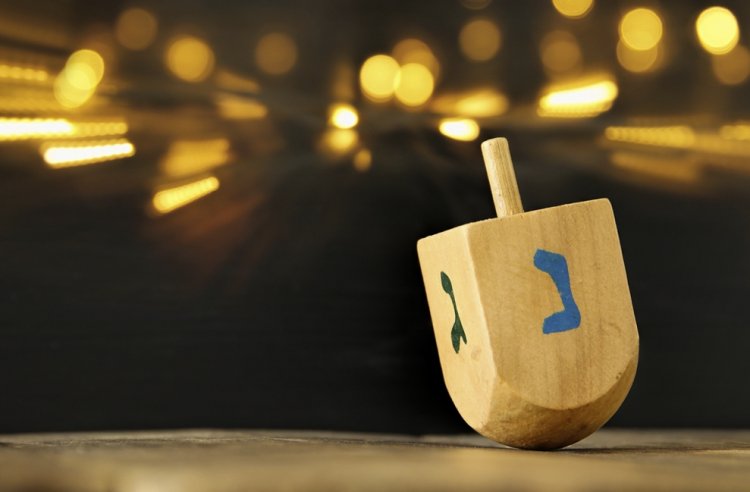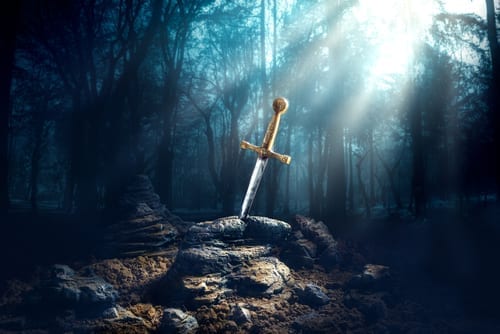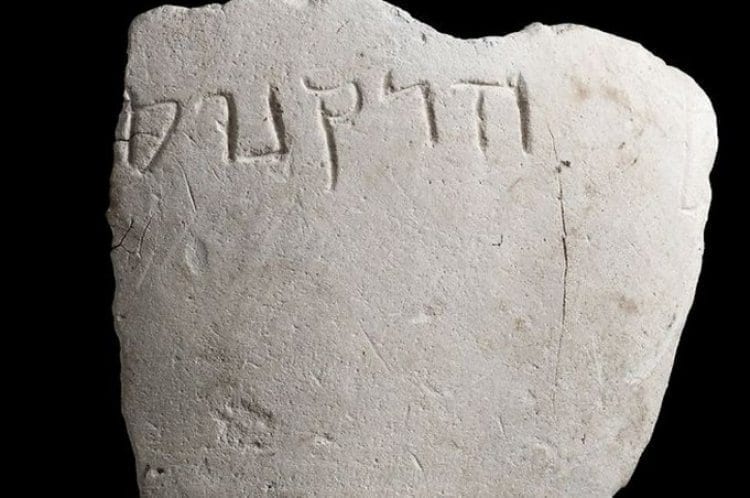Hanukkah meals
There is a custom to eat dairy foods on Chanukah in remembrance of the miracle performed by Yehudit; the custom is to eat Chanukah donuts [sufganiyot] or potato latkes fried in oil, in remembrance of the miracle of the oil that lasted for 8 days.
There is a debate concerning whether meals eaten during Chanukah are considered a meal in fulfillment of a commandment. If songs and praises are recited during a meal on Chanukah, it is considered a meal in fulfillment of a commandment.
Eating before lighting the Hanukkah candles
It is forbidden to eat a regular meal before lighting Chanukah candles (lest one will become preoccupied with his dinner and forget to light candles), but one may have a casual meal.
Foods which are considered a regular meal: eating bread or a pastry, piece of cake etc. which is more than a beitza (54 grams of bread).
Foods which are considered a casual meal: eating bread and pastry, etc. less than a beitza, and fruits, vegetables and drinks as much as one likes.
One should not eat a regular meal during the half an hour before candle lighting.
Only one who is lighting for himself may not have a meal before candle lighting, but a woman whose husband is lighting the candles in the home can eat a regular meal before the candle lighting if she needs it. (If she follows a stringency not to eat a regular meal — she should continue to keep her custom.)
A widow or divorcee who lights for herself may not eat a regular meal before candle lighting.
Doing work before lighting the Hanukkah candles
One may not start work before lighting the Chanukah candles (lest one become preoccupied with his work and forget to light the Chanukah candles).
Some are stringent and do not work half an hour before candle lighting.
Torah study before candle lighting
It is forbidden to study Torah before lighting the Chanukah candles (lest one will become preoccupied with his study and forget to light the Chanukah candles). One should not be stringent and stop studying Torah half an hour before candle lighting (as some are stringent with eating and working) because one may not neglect Torah study.
Who is obligated to light Hanukkah candles?
Everyone must light Chanukah candles: men and women and children who are at an age when they are teachable.
Sephardi Jews have the custom to light one menorah per household, which exempts everyone in the household.
Ashkenazi Jews have the custom that each and every member of the household lights their own menorah with a blessing.
A Sephardi Jew who his family had in mind to include when they lit Chanukah candles at home, even though he was not present at the lighting and when the blessing was recited, and even if he wasn’t in the same city, has fulfilled his obligation to light Chanukah candles.
Therefore, Sephardic yeshiva students whose parents are lighting candles at home and have them in mind are exempted from candle-lighting. If they want to be stringent and light Chanukah candles in the yeshiva — they should light without a blessing.
Ashkenazi yeshiva students have to light Chanukah candles with a blessing, even though their family lights candles at home.
Married men who are in the army or staying in a hotel and are not at home, do not need to light a candle, because they fulfill their obligation by their wife lighting the Chanukah candles at home. If they want to be stringent— they should light without a blessing.
Unmarried Sephardi soldiers whose parents are still supporting them fulfill their obligation by their parents lighting the Chanukah candles at home.
Sephardi students whose parents do not support them, i.e. they make their own livelihood and live on their own, light Chanukah candles with a blessing even if their parents light candles at home.
A woman whose husband does not light Chanukah candles, or is not at home (because he was in the army, traveling, etc.) must light Chanukah candles, and she lights a Chanukah candle with a blessing just like a man (she can also exempt him, as we explained above).
A mourner even within the seven days of mourning must keep all the commandments, so he must light candles for Chanukah with a blessing, and he even recites the blessing of Shehechiyanu on the first night of Chanukah.
A person who returned home late and wanted to light Chanukah candles, and found all the members of his household sleeping:
– If he can wake up one or two members of the family to hear the blessings, he should do so and then light the Chanukah candles.
– If he can not wake up a member of his family: he should still light the candles with a blessing as usual.
Those who want to light Chanukah candles at conferences, events, and parties held in banquet halls may do so because they are publicizing the miracle in a public venue.
When to light Hanukkah candles
The preferred time to light Chanukah candles is when the stars come out. For those who can not light Chanukah candles when the stars come out, it is permissible to light candles all night long until dawn. One who arrived about 20 minutes before dawn can still light Chanukah candles with a blessing.
The amount of oil or wax necessary for Hanukkah lights
The amount of oil or candle wax should be sufficient to remain lit at least a half hour after sunset. If the amount of oil or wax was insufficient for the lights to burn half an hour after nightfall — a person did not fulfill his obligation and he should extinguish the Chanukah candles, add oil or get a bigger candle, and light it again. He does not recite another blessing.
Which oil and candle wicks are kosher for Hanukkah
All oils and all wicks are kosher for Chanukah candles. Olive oil is the best oil to use for the mitzvah of Chanukah candles. Wax candles may also be used for Chanukah candles (if one doesn’t have oil) because wax candle light is as clear as oil. It is best that Chanukah lights shouldn’t be partly candles and partly oil, but they should all be either oil or candles.
It is not necessary to replace the wicks every day and one can use the wicks used previously. Some change the wicks every day in remembrance of the Temple.
How to light Hanukkah candles
The explanation below is for a person standing in front of the menorah while the menorah’s other side is facing outside. It is for the Chanukah candles one is required to light but doesn’t apply to the shammash candle.
(The place of the shammash candle depends on each menorah — some have it in the middle, right side, or left side of the menorah, usually slightly elevated above the candles. You can light the candles with a shammash candle, another candle, or a match, etc.)
In practice:
On the first night one should put a candle on the right side of the menorah (and the shammash in the space designated for it). One recites all three blessings and immediately lights the first candle (and only afterwards, the shammash).
On the second night, he puts two candles on the right side of the menorah (and the shammash in the space designated for it), recites two blessings and immediately lights the candles from the left to the right (and only afterwards the shammash).
On the third night, he puts three candles on the right side of the menorah (and the shammash in the space designated for it), recites two blessings and immediately lights the candles from the left to the right (and only afterwards the shammash).
On the fourth night onwards and every day until the eighth day: he puts the candles on the right side of the menorah, recites the blessings and immediately lights the candles from the left to the right (and only afterwards lights the shammash or puts it in its place).
Which blessings are recited when lighting the Hanukkah candles?
On the first night, three blessings: 1. “… to light a Chanukah candle.” 2. “… Who performed miracles for our forefathers …” 3. “… who let us live to see this day …”
On other nights: two blessings: 1. “… to light a Chanukah candle.” 2. “… Who performed miracles for our forefathers …”
The wording of the first blessing is “to light a Chanukah candle” (l’hadlik ner chanukah) A person who recited “to light a candle of Chanukah” (l’hadlik ner shel chanukah) has after the fact fulfilled his obligation. All the blessings are said before lighting the candles and one should light the Chanukah candles only after completing the blessings, because the rule is that “for all the commandments — one recites the blessing and then does them.”
After reciting the blessings, one should immediately light the candles and not speak or delay until the candles are lit. A person who needs a match may hint that he be brought a match, and after the fact he has fulfilled his obligation because he needed it for the commandment.
After lighting all the Chanukah candles, it is a worthy practice to say the psalm in the Book of Psalms, “The psalm and song of David when he inaugurated the Temple …” (Chapter 30)
One who forgot to recite all the blessings over the Chanukah candles, after the fact he has fulfilled his obligation and there is no need to go back and recite the blessings. The general rule is “blessings do not affect the fulfillment of a commandment.”
It is forbidden to use Hanukkah lights
It is forbidden to use the light of Chanukah candles even for a casual use such as to look for money or other items in the candlelight. The reason for the prohibition is so that commandments will not be regarded lightly.
One may not light one Chanukah candle from another, or light a match from a Chanukah candle which will then be used to light another Chanukah candle. If one of the Chanukah candles was extinguished, he should use the shammash candle to relight it.
Lighting candles on Shabbat eve
We explained above that Chanukah candles should have a sufficient amount of oil to remain lit for half an hour after nightfall. Therefore, on Friday evening when Chanukah candles are lit long before nightfall, a larger amount of oil or larger wax candles are necessary to last from the beginning of Shabbat until half an hour after nightfall, which is about an hour and a quarter.
On Friday evening, one has to light Chanukah candles and Shabbat candles. It is best if the husband first light Chanukah candles and then his wife light Shabbat candles (and a widow should do similarly). After the fact, if the woman already lit the Shabbat candles, the husband may light Chanukah candles.
Lighting candles on Saturday night
On Saturday night, a person has to make Havdala and also light Chanukah candles. He should first make Havdala and then light Chanukah candles.
Even those who conclude Shabbat according to Rabbeinu Tam’s time (i.e. one hour + 12 minutes after sunset) should make Havdala as usual according to Rabbeinu Tam’s time and should then light Chanukah candles.
Doing work while the candles are burning
The custom is for women not to do work during the half hour while the Chanukah candles are burning after being lit.
Forbidden work during this half an hour includes sewing, knitting and the like, but one is allowed to cook or bake and do everything necessary to prepare food.
What is first — praying the evening service or lighting Hanukkah candles?
A person who came home late and didn’t yet pray the night prayer (Maariv/Arvit) or light Chanukah candles, should first pray the night prayer and then light the candles. The reason for this is because when confronted with a frequent and non-frequent commandment to fulfill — the frequent one goes first (the daily evening service is far more frequent than lighting Chanukah candles).
If one forgot to light one day
Someone who forgot to light candles on one of the days of Chanukah has no way to make it up. On the following day, he should light the correct number of candles for that day (if it was the third day, then he lights three candles) and should not light more candles.
Eulogizing on Hanukkah
We do not eulogize the dead on Chanukah, although it is allowed to mourn a scholar during his funeral, and a school teacher who set aside regular time for Torah study. If the Shloshim period of mourning fell on Chanukah — it is permitted to make a meal and study for the elevation of the deceased, but one may not eulogize him.
A fast on Hanukkah
It is forbidden to fast on Chanukah.
Going to a cemetery on Hanukkah
We do not visit a cemetery on Chanukah even at the end of the seven days of mourning and all the more so on the thirtieth day of mourning. Therefore one should postpone the visit until after Chanukah. There is a debate whether it is permissible to visit the graves of the righteous on Chanukah, and those who are lenient to visit the graves of the righteous during Chanukah have authorities who support it.
Mourning on Hanukkah
All laws of mourning are kept on Chanukah, and it is permitted to comfort and visit a mourner on Chanukah.
Happy Hanukkah!





